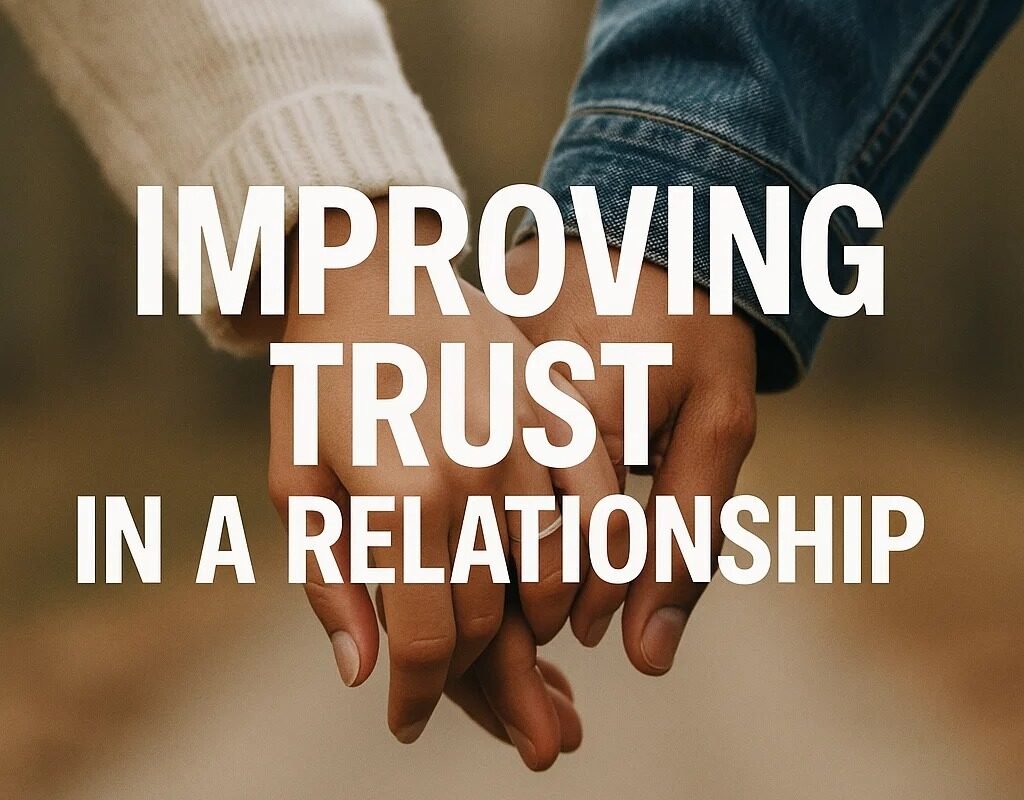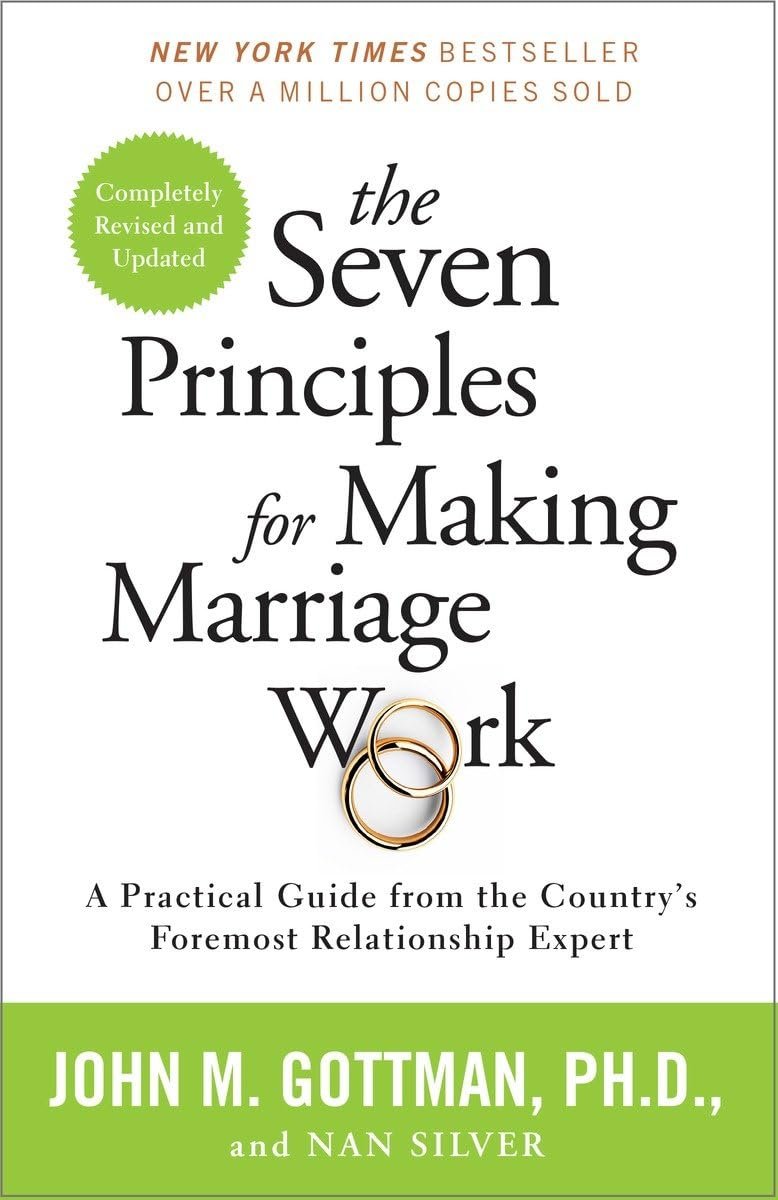If your relationship feels tense, uncertain, or distant, it’s often not love that’s missing — it’s trust. Improving trust in a relationship means rebuilding emotional safety, repairing communication, and showing your partner through action that they can rely on you again.
Verdict: Trust improves when both partners commit to honesty, empathy, and consistent follow-through. It’s a process — but it’s absolutely achievable.
Why this matters: Trust is the heartbeat of intimacy. When it’s strong, partners feel calm and connected. When it’s fractured, every conversation can feel fragile. Learning how to improve trust in a relationship restores peace, deepens affection, and rebuilds the sense of “us” that once felt effortless.
Best Books on Relationships: Comparison Table
Criteria | |||||
|---|---|---|---|---|---|
 | |||||
Primary Focus | Love expression & understanding | Research-based marriage skills | Emotional bonding & attachment | Decision-making & relationship clarity | Love & respect dynamic |
Ideal Audience | All couples & individuals | Married or long-term couples | Emotionally struggling couples | Couples in transition or crisis | Faith-based or traditional couples |
Strengths | Simple, easy to apply | Science-backed & practical | Deep emotional insight | Honest, empowering self-assessment | Clear, practical, structured |
Limitations | Lacks depth for complex issues | Slightly academic tone | Emotionally heavy | Focuses on decisions, not repair | Gender-role assumptions |
Best For | Improving everyday connection | Strengthening long-term partnerships | Rebuilding emotional intimacy | Evaluating relationship viability | Enhancing respect & love balance |
Price |
Why Trust Sometimes Fades
Even the healthiest couples can hit seasons of doubt. Trust doesn’t always shatter dramatically — sometimes it erodes slowly through neglect, miscommunication, or avoidance.
Common reasons trust fades include:
- Broken promises or dishonesty (even small lies add up)
- Emotional disconnection — when one partner stops being fully present
- Poor communication patterns like stonewalling, criticism, or withdrawal
- Unhealed personal wounds from past relationships or childhood experiences
- Unmet needs that slowly turn into resentment
Psychologist Dr. Sabrina Romanoff explains that trust is built through consistency and vulnerability. When either is missing, doubt takes root.
The Psychology of Improving Trust in a Relationship
Improving trust in a relationship isn’t about “earning points.” It’s about creating predictability, emotional attunement, and shared responsibility.
Relationship researchers Drs. John and Julie Gottman describe trust as the sum of “sliding door moments” — the tiny, everyday choices to turn toward your partner instead of away.
Every honest conversation, apology, or act of empathy is a small deposit into your “trust bank.”
The good news? The brain is wired for repair. When your partner sees consistent safe behavior over time, the nervous system re-learns that connection is possible again.
How to Improve Trust in a Relationship
1. Be Transparent About Your Intentions
Honesty begins with clarity. Tell your partner what you’re doing, why it matters, and how you feel. Surprises are great for birthdays — not for emotional safety.
2. Keep Promises — Especially Small Ones
If you say you’ll text, call, or help with something, follow through. Micro-trust is built from micro-actions.
3. Show Accountability, Not Excuses
When something goes wrong, own it. “I should’ve told you sooner, and I understand that hurt you” rebuilds connection faster than defensiveness ever could.
4. Practice Active Empathy
Listen to understand, not to defend. When your partner expresses pain or fear, try mirroring what they said:
“You felt left out when I canceled plans — that makes sense.”
Validation tells your partner their feelings are real and safe to share.
5. Be Consistent in Words and Actions
Say what you mean, mean what you say, and repeat it. Consistency transforms uncertainty into calm.
6. Reconnect Emotionally
Spend intentional time together — cook, walk, share gratitude. Trust improves when you rebuild emotional intimacy.
7. Heal Your Own Trust Blocks
If past betrayal or trauma makes you suspicious or anxious, therapy can help. Self-awareness protects your relationship from old wounds.
Rebuilding Trust After a Breach
If there’s been infidelity, dishonesty, or deep hurt, the process is slower — but it can work.
Step 1: Radical honesty — no more secrets, omissions, or gray areas.
Step 2: Full empathy — understand the impact, not just your intentions.
Step 3: Transparency routines — open phones, open conversations, regular check-ins.
Step 4: Boundaries for healing — agree on what each partner needs to feel safe.
Step 5: Professional guidance — couples therapy or coaching adds structure and accountability.
According to the Gottman Institute, the couples who recover best from betrayal are those who create new meaning together after the pain — not just return to old routines.
Practical Habits to Strengthen Trust Daily
Here are small, tangible actions you can use starting today:
- Be on time — it signals reliability.
- Text when plans change.
- Express appreciation for honesty, even when it’s uncomfortable.
- Speak with “I” statements instead of blame.
- Acknowledge your partner’s efforts (“I noticed you tried to be more open today”).
- Schedule time for emotional check-ins each week.
- Reassure your partner with warmth, not repetition (“I’m here,” “We’ll get through this”).
Common Mistakes That Hurt Progress
- Over-checking your partner’s actions — rebuild safety, not surveillance.
- Rushing forgiveness before healing is ready.
- Withholding affection as punishment.
- Avoiding hard conversations.
- Expecting instant change.
Healing trust is a marathon, not a sprint — steady effort beats intensity every time.
Use-Case Examples
- For new couples: Build trust by communicating expectations early and showing reliability.
- For long-term partners: Reignite trust by deepening emotional connection and reducing autopilot behavior.
- For couples healing from betrayal: Practice transparency, forgiveness, and consistent daily reassurance.
- For anxious partners: Build inner trust through mindfulness and therapy so external trust feels safer.
FAQs
Q: How long does it take to improve trust in a relationship?
A: Depending on the damage and effort level, it can take weeks for mild breaches or many months for deep betrayals. Progress is measured by safety and openness, not time.
Q: Can a relationship survive without complete trust?
A: It can survive, but not thrive. Lack of trust creates chronic tension that erodes intimacy over time.
Q: What if my partner doesn’t think there’s a trust issue?
A: Focus on describing your feelings (“I feel anxious when…”) instead of accusations. Invite them into your emotional experience rather than defending a position.
Q: Is rebuilding trust the same as forgiving?
A: Not exactly. Forgiveness is emotional release; trust is behavioral proof. Both are needed for full repair.
Q: Should we go to couples therapy for trust issues?
A: Yes, especially after betrayal. A neutral space helps rebuild accountability and structure honest dialogue.
Final Thoughts
Improving trust in a relationship doesn’t mean going back to the past — it means building something better. Every honest moment, kind word, and consistent action re-teaches your partner that they’re safe with you.
If you feel discouraged, remember this: trust is not destroyed in one day, and it’s not rebuilt in one day. But with patience, transparency, and compassion, it will return — stronger, steadier, and more real than before.
Other Interesting Articles
- Free Therapy Worksheets at Paul Wellness
- How to Stay Calm During Exposure Therapy
- Best Books on Exposure Therapy: Your Guide to Overcoming Anxiety, OCD, and PTSD
- Exposure Therapy for Social Anxiety: How to Stop Avoiding and Start Thriving
- Exposure Therapy for PTSD: Facing the Past to Reclaim Your Life
- Exposure Therapy for OCD: How Facing Obsessions Can Finally Free Your Mind
- Exposure Therapy for Anxiety: How Facing Your Fears Can Actually Set You Free
About the Author
Paul Wellness — https://paulwellness.com
Paul Wellness creates expert-driven mental-health content rooted in clinical experience and compassion. Specializing in relationship dynamics, anxiety recovery, and emotional regulation, Paul Wellness helps readers turn insight into lasting change.




